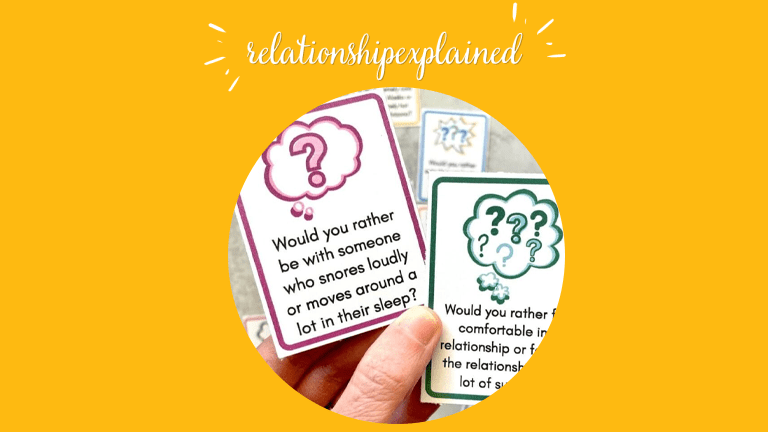Do Narcissists Jump From One Relationship To Another?
Driven by a constant need for validation, fear of intimacy, and a lack of empathy, narcissists may seek new partners to sustain their fragile self-esteem. Recovering from a relationship with a narcissistic ex demands acknowledging emotions, setting boundaries, seeking support, and practicing self-compassion.
Ever wondered why narcissists seem to hop from one relationship to another like they're changing outfits?
It's a fascinating topic that peeks into the minds of these emotionally tricky individuals. They've got a knack for moving on faster than you can say, "Break up!"
So, let’s dive into the psychology behind their whirlwind romantic escapades, exploring how a person’s narcissistic supply propels a relentless search for a new partner. Get ready to uncover the secrets of these relationship nomads and understand the rollercoaster they put their unsuspecting victims through.
10 Reasons Why Narcissists Switch Partners So Quickly
Navigating the tumultuous world of romantic relationships can be challenging, and when dealing with someone with narcissistic personality disorder, the complexity reaches a whole new level.
One common pattern observed in individuals with a narcissistic supply is their rapid shift from one partner to another. Understanding the reasons behind this is crucial to comprehend the dynamics of a new relationship with a narcissist and the emotional toll it takes on their partners.
Let’s take a look at ten key factors that contribute to why a narcissistic person may switch partners so quickly.
1. Constant Need For Validation
At the core of a narcissist's behavior lies an insatiable need for continuous attention and unwavering admiration, vital for propping up their fragile sense of self-esteem.
In the beginning, romantic partners offer an enticing source of validation, lavishing them with the desired affection and adoration. However, as their “love bombing” inevitably wanes, the narcissist's hunger for validation remains unquenched.
Driven by their relentless pursuit of admiration, they seek gratification elsewhere, resulting in the erosion of their current relationship's foundation, leaving behind a trail of broken hearts.
2. Fear Of Intimacy
Behind their charismatic and charming facade, narcissists harbor an overwhelming fear of genuine emotional intimacy. Though they may excel at drawing others in, the prospect of vulnerability and deep emotional connections terrifies them.
The idea of being truly known and exposed, flaws and all, triggers an intense sense of insecurity and discomfort. Consequently, they resort to emotionally detaching from the relationship, creating a protective barrier to shield themselves from the potential pain of emotional exposure.
By jumping into new partnerships swiftly, they can maintain a superficial level of interaction, avoiding the profound emotional bonds that trigger their anxiety. In doing so, they perpetuate a cycle of surface-level connections, shielding themselves from any genuine emotional entanglement that may unveil their inner insecurities.
3. Boredom And Sensation Seeking
For narcissists, the thrill of excitement and novelty serves as a potent elixir. They relish the exhilarating rush that comes with a new relationship, basking in the initial stages of infatuation.
However, as the novelty fades and routine settles in, they swiftly grow restless and disenchanted. In their relentless pursuit of that adrenaline-fueled high, they become addicted to the chase, perpetually seeking out fresh experiences with different partners.
This constant craving for novelty transforms into a pattern of relationship hopping as they yearn for the intoxicating feeling of being pursued and admired. Sadly, this cycle is rarely sustainable, and the transient nature of their connections often leaves a trail of emotional wreckage in their wake.
Ultimately, their quest for never-ending excitement becomes a self-destructive dance, repeating patterns the same way without finding lasting fulfillment.
4. Lack Of Empathy
Narcissists lack empathy, rendering them incapable of comprehending their partners' emotions and needs.
Their emotional detachment and self-centered focus become the driving force behind their swift departure from relationships. Since they are unable to grasp the depth of their partner's feelings, how they hurt their former partner holds little significance.
With their emotional disconnect, they find it effortless to move on to new partners without a second thought about the lack of emotional stability from their former partner. Narcissists behave callously in a similar vein to emotional abuse, highlighting the profound absence of genuine emotional connection that defines their romantic endeavors.
5. Entitlement And Selfishness
Narcissistic personalities often have a grandiose sense of entitlement and a belief that they deserve the best in life. This sense of entitlement extends to their romantic partners as well. If they perceive that their current partner is not fulfilling their own needs or meeting their expectations, they may discard them at a moment’s notice.
6. Idealization Vs. Devaluation
At the beginning of a relationship, narcissists tend to idealize their partners, putting them on a pedestal and seeing only their positive attributes. However, this idealization is often short-lived, and when their partners inevitably fall from grace or fail to meet their unrealistic expectations, the narcissist shifts to a phase of devaluation, seeing their partners as flawed and unworthy.
After this devaluation, the narcissist makes efforts to seek out new partners, perpetuating the cycle.
7. Avoidance Of Responsibility
Narcissists are skilled at deflecting blame onto someone else and avoiding taking responsibility for their actions. When problems arise in a relationship, they may avoid working through them or seek to escape accountability by moving on to a new partner instead.
8. Pursuit Of The "Perfect" Partner
Narcissists are continually in search of an idealized partner who can fulfill their every desire and meet their lofty expectations. As they are unable to see the imperfections in themselves, they may perceive their partners as the ones falling short. This relentless pursuit of perfection leads them to frequently change partners in the quest for an unattainable ideal.
9. Lack Of Emotional Investment
For narcissists, relationships are often transactional. They engage in relationships to extract what they need, such as attention, validation, and admiration, without truly investing emotionally in their partners. Consequently, when they feel they have gained what the narcissist wanted, they may lose interest and move on to someone else.
10. External Validation And Status
Narcissistic people often view relationships as a means to enhance their social status and public image. They may seek out partners who provide them with a sense of prestige or financial benefits. Once they have achieved their desired status or validation from the relationship, they may discard their partner and pursue a new connection that offers even greater social benefits.
Tips On Getting Over A Narcissistic Ex
Breaking free from a past relationship with a narcissistic partner can be an emotionally challenging and tumultuous journey. This is especially true after a rough break-up.
The aftermath of such a relationship often leaves individuals feeling depleted, manipulated, and emotionally scarred. However, there is hope for healing and rebuilding a life free from the toxic influence of a narcissist ex.
Here’s a comprehensive guide of tips and strategies to help individuals deal with the process of getting over a narcissistic ex and reclaiming their emotional well-being.
1. Acknowledge And Validate Your Feelings
One of the most critical steps in healing from a narcissistic relationship is to acknowledge and validate your feelings. The emotional rollercoaster experienced during and after such a relationship can be overwhelming.
You may find yourself grappling with a wide range of emotions, including sadness, anger, confusion, and even self-blame. It is essential to remember that these feelings are a natural part of the healing process. Know that not everyone deserves to face the way a narcissist thinks and operates.
Allow yourself to experience these emotions without judgment or guilt, embrace your true self, and try to avoid rebound relationships.
2. Educate Yourself About Narcissism
Understanding narcissism and its traits can provide clarity and validation for what you experienced in the relationship.
A narcissistic partner is adept at manipulating and gaslighting their victims, making them doubt their own perceptions and experiences. Educating yourself about narcissism can help you realize that the issues in the relationship were not your fault and that you were dealing with a narcissistic personality disorder.
Learning about narcissistic behavior patterns gives you power to break free from the self-blame and gain insights into the dynamics of the relationship.
3. Set Boundaries And Go “No-Contact”
Establishing firm boundaries is crucial in breaking free from the grasp of a narcissistic ex-partner.
Narcissistic people thrive on control and manipulation, and breaking contact is one of the most effective ways to regain your emotional autonomy. Implement a strict no-contact rule, which means cutting off all communication and interaction with your ex, including ignoring social media posts.
Going no contact protects you from further emotional manipulation and helps you focus on your healing process.
4. Seek Support From Loved Ones
During the healing journey, seeking support from loved ones can be immensely beneficial. Reach out to friends, family, or support groups to share your experiences and feelings.
Talking about your struggles with most people who care can provide emotional validation, comfort, and encouragement. Being heard and understood by empathetic individuals can help you feel included and important again. They can remind you that you are not alone in your healing process.
5. Engage In Self-Care Activities
Prioritizing self-care is crucial for rebuilding your emotional well-being after a narcissistic relationship. Engage in activities that bring you joy, relaxation, and a sense of fulfillment.
Whether it's practicing mindfulness, exercising, reading, or spending time in nature, self-care activities can help you reconnect with yourself and rediscover your worth.
6. Seek Professional Help
Dealing with the aftermath of a narcissistic relationship can be complex and emotionally taxing. Consider seeking support from a therapist or counselor experienced in dealing with narcissist abuse.
A licensed clinical social worker can provide a safe space for you to process your emotions, validate your experiences, and gain insights into a coping mechanism. Therapy can be instrumental in helping you build resilience, set healthy boundaries, and develop strategies to navigate future relationships more effectively.
7. Challenge Negative Self-Perceptions
Narcissistic ex-partners often undermine their victims' low self-esteem through manipulation and gaslighting. As a result, you may find yourself grappling with negative self-perceptions and doubts about your worth.
Challenge these negative thoughts and practice self-compassion. Remind yourself that you are deserving of love, respect, and happiness, and recognize that your worth is not defined by the narcissist's false narrative.
8. Reflect And Learn From The Experience
Take time to reflect on the relationship and identify any patterns or red flags that you may have missed. This self-reflection is not meant for self-blame but rather to empower yourself with knowledge about narcissistic abuse. Learning from the experience can help you make healthier relationship choices in the future and set clear boundaries to protect yourself from toxic dynamics.
9. Avoid Rekindling The Relationship
After a breakup with a narcissistic ex, it is not uncommon for them to attempt to reestablish contact or "hoover" their ex-partners back into the rebound relationships. They may use manipulation, false promises, or even guilt to lure you back.
Recognize these manipulation tactics for what they are and resist the temptation to rekindle the romance. Reentering the relationship is unlikely to lead to positive change; instead, it will likely repeat the same destructive patterns.
10. Establish New Goals And Interests
Rediscover your passions and set new goals for yourself. Focusing on personal growth and pursuing new interests can help shift your focus away from the past and towards a brighter future. Embrace this as an opportunity for self-discovery and a chance to redefine your whole life according to your aspirations and values.
11. Practice Mindfulness And Gratitude
Mindfulness techniques, such as meditation and deep breathing, can help you stay present and centered during times of emotional distress. By practicing mindfulness, you can observe your thoughts and emotions without getting entangled in them. Additionally, cultivating gratitude for the positive aspects of your life can foster a sense of contentment and hope, even in challenging times.
12. Avoid Isolation
The aftermath of a narcissistic relationship can leave you feeling isolated and lonely. However, isolation can exacerbate feelings of sadness and despair.
Surround yourself with supportive and understanding individuals who can provide comfort and encouragement. Socialize with friends, participate in group activities, and be open to forming new connections, after which you will be left feeling like a new person altogether.
To Sum Up
Healing from a romantic relationship with a narcissistic ex requires courage, self-compassion, and a willingness to embrace growth.
By acknowledging emotions, setting boundaries, seeking support, and prioritizing self-care, individuals can break free from the toxic influence of a narcissistic person. Educate yourself about a person’s narcissistic supply and understand the dynamics at play.
With patience and resilience, they can rebuild their lives, foster healthy new relationships, and rediscover their self-worth. Remember, the journey to healing is unique to each individual, but with the right strategies and support, a brighter and more fulfilling future is within reach.













